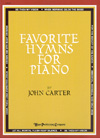- |
User Links
Sing, my tongue, the glorious battle, Sing the ending of the fray (Dearmer)

Sing, my tongue, the glorious battle, Sing the ending of the fray (Dearmer)
Translator: Percy Dearmer; Author: Venantius Honorius Clementianus FortunatusPublished in 14 hymnals
Printable scores: PDF, MusicXMLPlayable presentation: Lyrics only, lyrics + musicAudio files: MIDI, Recording
Representative Text
1 Sing, my tongue, the glorious battle,
sing the ending of the fray,
o'er the cross, the victor's trophy,
sound the loud triumphant lay:
tell how Christ, the world's Redeemer,
as a victim won the day.
2 God in pity saw man fallen,
shamed and sunk in misery,
when he fell on death by tasting
fruit of the forbidden tree:
then another tree was chosen
which the world from death should free.
3 Therefore when the appointed fullness
of the holy time was come,
he was sent who maketh all things
forth from God's eternal home:
thus he came to earth, incarnate,
offspring of a maiden's womb.
4 Thirty years among us dwelling,
now at length his hour fulfilled,
born for this, he meets his Passion,
for that this he freely willed,
on the cross the Lamb is lifted,
where his life-blood shall be spilled.
5 To the Trinity be glory,
to the Father and the Son,
with the co-eternal Spirit,
ever Three and ever One,
one in love and one in splendour,
while unending ages run. Amen.
Source: Ancient and Modern: hymns and songs for refreshing worship #151
Translator: Percy Dearmer
 Dearmer, Percy, M.A., son of Thomas Dearmer, was born in London, Feb. 27, 1867, and educated at Westminster School and at Christ Church, Oxford (B.A. 1890, M.A. 1896). He was ordained D. 1891, P. 1892, and has been since 1901 Vicar of S. Mary the Virgin, Primrose Hill, London. He has been Secretary of the London Branch of the Christian Social Union since 1891, and is the author of The Parson's Handbook, 1st edition, 1899, and other works. He was one of the compilers of the English Hymnal, 1906, acting as Secretary and Editor, and contributed to it ten translations (38, 95, 150, 160, 165, 180, 215, 237, 352, 628) and portions of two others (242, 329), with the following originals:—
1. A brighter dawn is breaking. Easter. Suggested by… Go to person page >
Dearmer, Percy, M.A., son of Thomas Dearmer, was born in London, Feb. 27, 1867, and educated at Westminster School and at Christ Church, Oxford (B.A. 1890, M.A. 1896). He was ordained D. 1891, P. 1892, and has been since 1901 Vicar of S. Mary the Virgin, Primrose Hill, London. He has been Secretary of the London Branch of the Christian Social Union since 1891, and is the author of The Parson's Handbook, 1st edition, 1899, and other works. He was one of the compilers of the English Hymnal, 1906, acting as Secretary and Editor, and contributed to it ten translations (38, 95, 150, 160, 165, 180, 215, 237, 352, 628) and portions of two others (242, 329), with the following originals:—
1. A brighter dawn is breaking. Easter. Suggested by… Go to person page >Author: Venantius Honorius Clementianus Fortunatus
 Venantius Honorius Clematianus Fortunatus (b. Cenada, near Treviso, Italy, c. 530; d. Poitiers, France, 609) was educated at Ravenna and Milan and was converted to the Christian faith at an early age. Legend has it that while a student at Ravenna he contracted a disease of the eye and became nearly blind. But he was miraculously healed after anointing his eyes with oil from a lamp burning before the altar of St. Martin of Tours. In gratitude Fortunatus made a pilgrimage to that saint's shrine in Tours and spent the rest of his life in Gaul (France), at first traveling and composing love songs. He developed a platonic affection for Queen Rhadegonda, joined her Abbey of St. Croix in Poitiers, and became its bishop in 599. His Hymns far all th… Go to person page >
Venantius Honorius Clematianus Fortunatus (b. Cenada, near Treviso, Italy, c. 530; d. Poitiers, France, 609) was educated at Ravenna and Milan and was converted to the Christian faith at an early age. Legend has it that while a student at Ravenna he contracted a disease of the eye and became nearly blind. But he was miraculously healed after anointing his eyes with oil from a lamp burning before the altar of St. Martin of Tours. In gratitude Fortunatus made a pilgrimage to that saint's shrine in Tours and spent the rest of his life in Gaul (France), at first traveling and composing love songs. He developed a platonic affection for Queen Rhadegonda, joined her Abbey of St. Croix in Poitiers, and became its bishop in 599. His Hymns far all th… Go to person page >Text Information
| First Line: | Sing, my tongue, the glorious battle, Sing the ending of the fray (Dearmer) |
| Latin Title: | Pange lingua gloriosi |
| Translator: | Percy Dearmer |
| Author: | Venantius Honorius Clementianus Fortunatus |
| Meter: | 8.7.8.7.8.7 |
| Language: | English |
| Copyright: | Public Domain |
English
- Ancient and Modern: hymns and songs for refreshing worship #151
- Common Praise (1998) #185
- Common Praise: A new edition of Hymns Ancient and Modern #121
- The Book of Common Praise: being the hymn book of The Church of England in Canada (revised 1938) #129b
- The Book of Common Praise: being the hymn book of The Church of England in Canada (revised 1938) #129a
- The Cyber Hymnal #6091
- The English Hymnal #95
- The English Hymnal: with tunes #95
- The English Hymnal: with tunes #95
- The New English Hymnal #78 10 shown out of 11


 My Starred Hymns
My Starred Hymns




